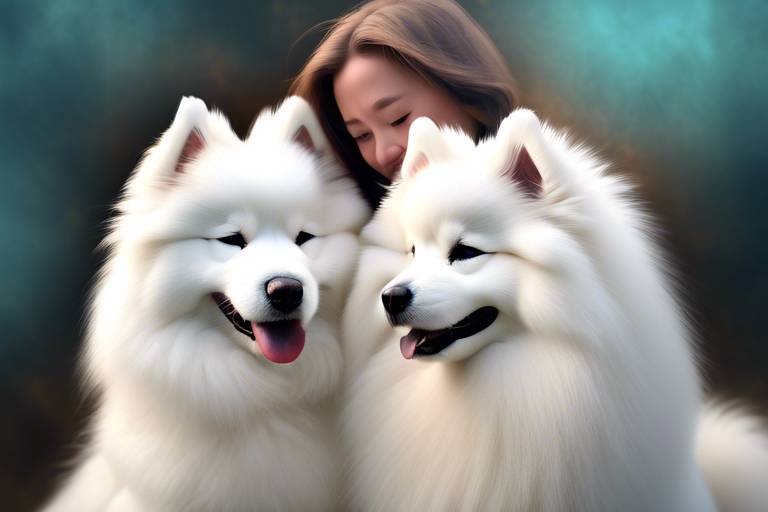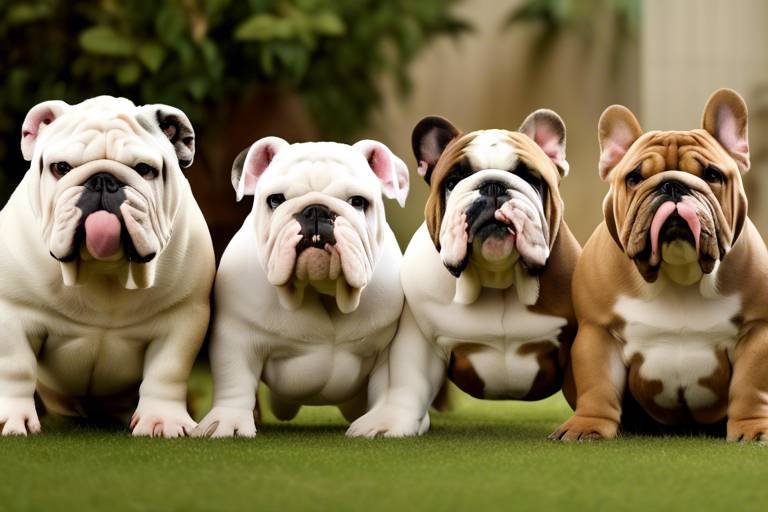The Affectionate Nature of Samoyeds
When you think of a dog that embodies affection and friendliness, the Samoyed probably springs to mind. These fluffy, white companions are not just pets; they are family members that thrive on love and companionship. Originating from the cold, harsh climates of Siberia, Samoyeds were bred by the indigenous Samoyede people, who relied on them for herding reindeer and providing warmth during the long, frigid nights. This history of close human interaction has shaped the Samoyed's temperament, making them one of the most loving breeds you can find. Their playful nature and gentle demeanor make them ideal companions for families, singles, and everyone in between.
Samoyeds are often recognized for their signature smiling faces and fluffy coats, which not only contribute to their adorable appearance but also reflect their joyful personalities. Their affectionate nature is evident in their interactions with humans and other pets. They are known to form deep bonds with their families, often following them around the house and seeking out opportunities for cuddles and playtime. This breed is not just about looks; they have a heart full of love to give, making them wonderful companions for anyone willing to invest time and effort into their care.
In addition to their playful demeanor, Samoyeds are highly intelligent and eager to please, which can make training a rewarding experience. However, it's important to remember that their affectionate nature also means they thrive on social interaction. Leaving a Samoyed alone for long periods can lead to feelings of loneliness, which may manifest in destructive behaviors. Therefore, understanding their needs and providing them with a loving environment is essential for a happy, well-adjusted pet.
In summary, the affectionate nature of Samoyeds is a combination of their rich history, stunning physical traits, and their innate ability to bond with humans. Whether you're looking for a playful companion for your children or a loyal friend to share your life with, a Samoyed can bring immense joy and love into your home. With proper care, training, and socialization, these dogs can thrive in any environment, enriching the lives of their owners with their unconditional love and affectionate spirit.
- Are Samoyeds good with children? Yes, Samoyeds are known for their friendly and playful nature, making them excellent companions for children.
- How much grooming do Samoyeds require? Samoyeds have a thick double coat that requires regular grooming to prevent matting and reduce shedding.
- Do Samoyeds get along with other pets? Generally, Samoyeds are social dogs and can get along well with other pets when properly socialized.
- How much exercise do Samoyeds need? Samoyeds are active dogs that require regular exercise to stay healthy and happy. Daily walks and playtime are essential.
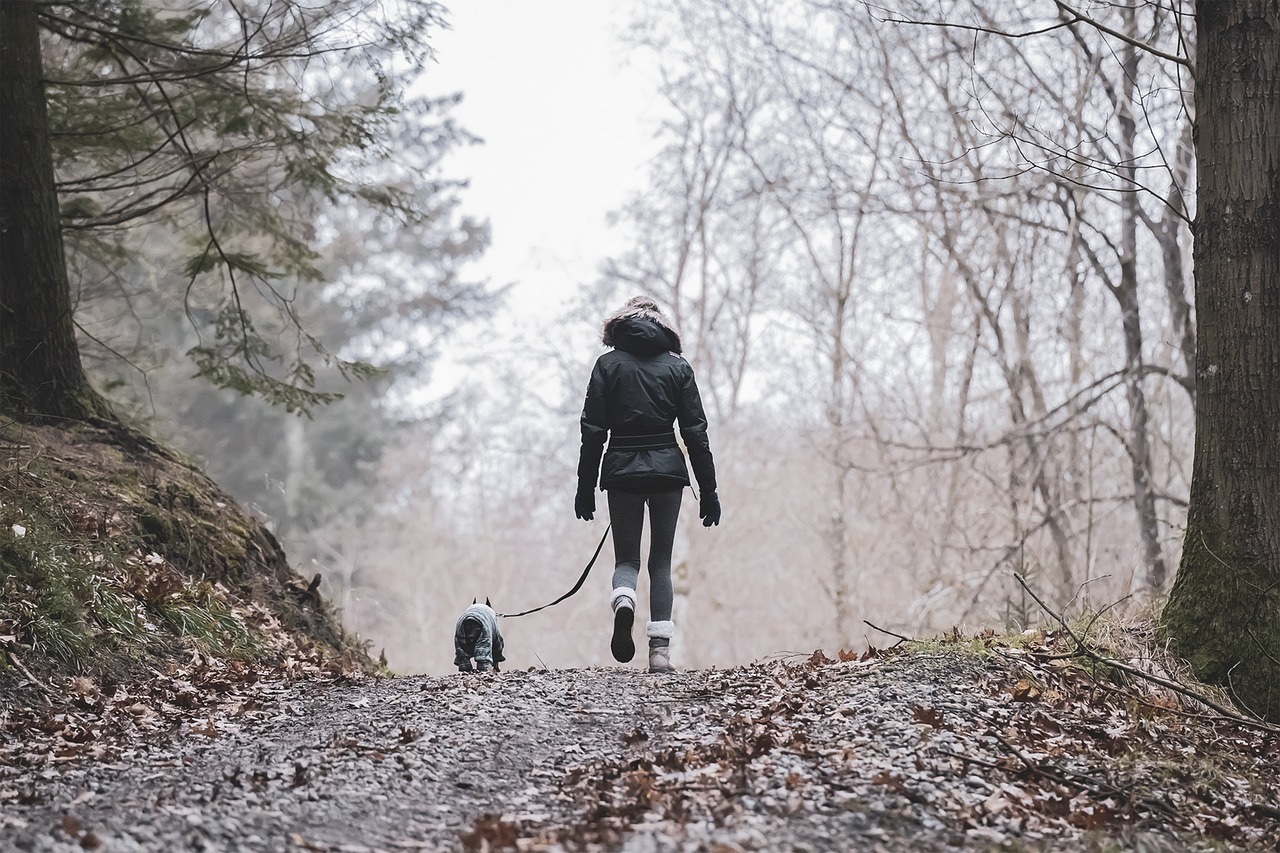
History of the Samoyed Breed
The Samoyed breed has a rich and fascinating history that dates back thousands of years. Originally bred by the Samoyede people of Siberia, these dogs were not just companions but also essential working animals. They played a significant role in herding reindeer, pulling sleds, and providing warmth to their human families. The bond between the Samoyede people and their dogs was not merely functional; it was deeply affectionate. This close relationship established a foundation for the affectionate nature that we see in Samoyeds today.
Throughout history, Samoyeds have been celebrated for their friendly disposition and loyalty. Their ability to adapt to harsh climates is a testament to their resilience and strength. The breed's name is derived from the Samoyede people, who relied on these dogs for their survival in extreme conditions. The dogs were often seen as family members, sharing the warmth of their owners’ tents and offering companionship during long, cold nights.
As the world evolved, so did the role of the Samoyed. In the late 19th century, explorers and adventurers took notice of these remarkable dogs. They became popular among explorers in the Arctic regions, where their strength and friendly nature made them invaluable partners. The Samoyed Club of America was established in 1923, further promoting the breed and its affectionate characteristics.
Today, Samoyeds are cherished not only for their beauty and striking appearance but also for their loving temperament. They have transitioned from working dogs to beloved family pets, maintaining their affectionate nature while adapting to modern living. Their history is a beautiful tapestry woven with threads of companionship, loyalty, and love, making them one of the most endearing breeds in the canine world.
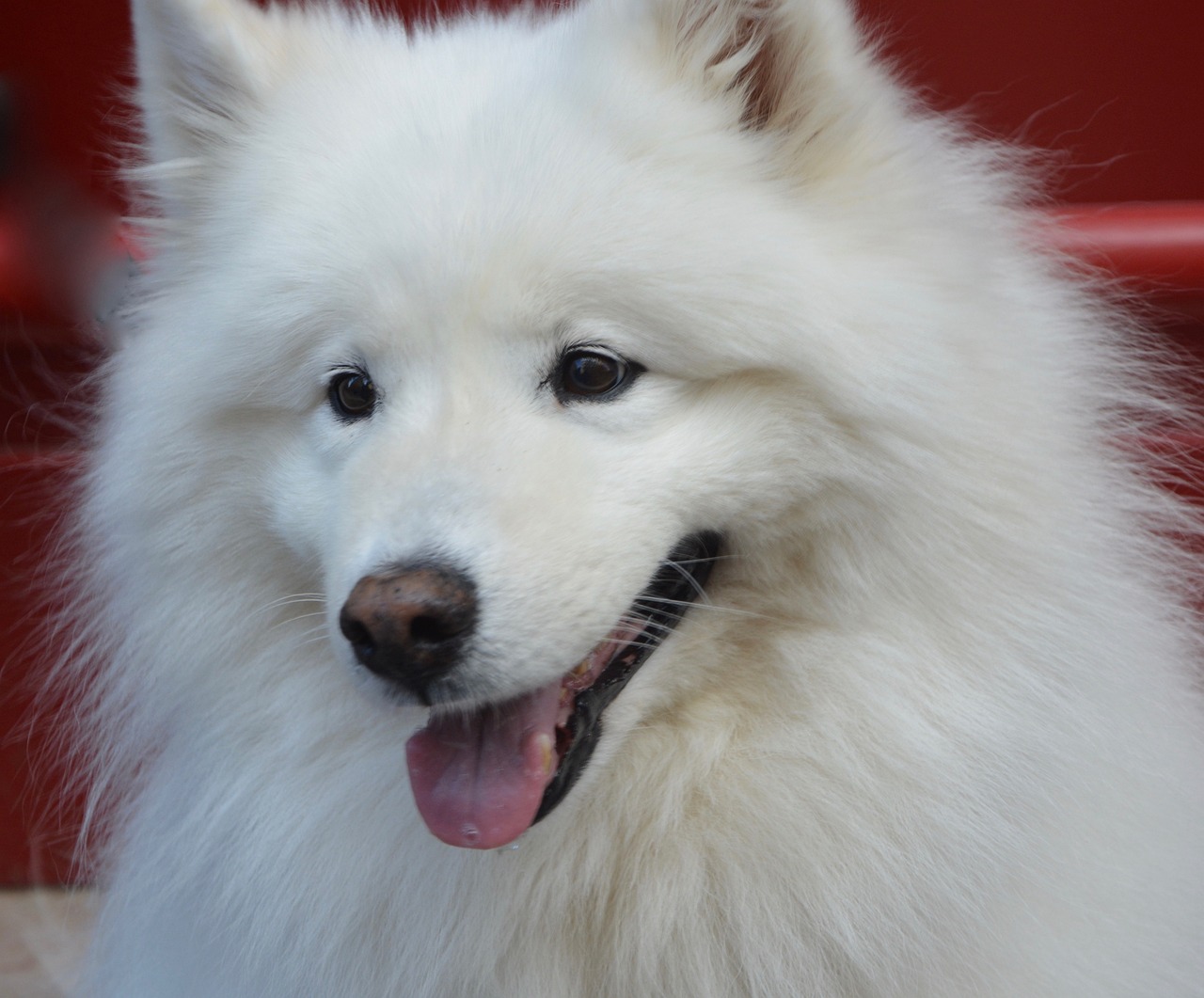
Physical Characteristics
When you first lay eyes on a Samoyed, you can't help but be captivated by their striking appearance. These dogs are often described as having a fluffy white coat that seems to glow in the sunlight, giving them an almost ethereal presence. Their most distinctive feature, however, is their smile—a natural expression that radiates warmth and friendliness. This charming grin is not just for show; it reflects their affectionate nature and ability to connect with people on an emotional level.
The Samoyed's build is also noteworthy. They are medium-sized dogs, typically weighing between 35 to 65 pounds, with males generally larger than females. Their strong, sturdy bodies are built for endurance, a trait inherited from their history as working dogs for the Samoyede people in Siberia. This background has endowed them with a strong sense of loyalty and an innate desire to be part of a family unit.
One of the most important aspects of a Samoyed’s physical characteristics is their double-layered coat. This coat consists of a soft, thick undercoat that provides insulation and a longer, harsher outer coat that repels water and dirt. This unique combination not only keeps them warm in frigid temperatures but also contributes to their playful and energetic demeanor. However, this beautiful coat requires regular grooming to prevent matting and to keep it looking its best. During grooming sessions, owners can strengthen their bond with their Samoyed, turning a routine task into a loving experience.
Grooming a Samoyed is not just about maintaining their looks; it’s also about nurturing their affectionate spirit. Regular brushing is essential, and it’s recommended to use tools like slicker brushes and combs to effectively manage their thick fur. Grooming should be a pleasant experience for both the dog and the owner. By incorporating treats and gentle praise during grooming, you can reinforce positive behavior and make the process enjoyable. This interaction fosters a deeper connection and trust between you and your furry friend.
Here are some essential grooming tools that can help keep your Samoyed looking fabulous:
- Slicker Brush: Ideal for removing loose fur and preventing mats.
- Undercoat Rake: Helps to reach the undercoat and remove dead hair.
- Comb: Great for finishing touches and detangling.
- Dog Shampoo: Use a gentle, moisturizing shampoo for baths.
Bathing a Samoyed is another important aspect of their grooming routine. While they don’t require frequent baths—typically every few months is sufficient—when the time comes, it can be a wonderful bonding experience. Use a high-quality dog shampoo that is suitable for their skin type, and make sure to rinse thoroughly to avoid any residue. After the bath, you can dry them off with a towel and enjoy some playful time together. This not only maintains their hygiene but also reinforces the affectionate bond you share.
In conclusion, the of Samoyeds contribute significantly to their role as loving family pets. Their stunning appearance, combined with their friendly demeanor, makes them a joy to have around. Understanding these traits helps potential owners appreciate the unique charm and affectionate nature of this wonderful breed.
Coat and Grooming
The Samoyed's coat is one of its most distinctive features, and it plays a crucial role in its overall charm and appeal. With a thick, double-layered coat, these dogs are not only stunning to look at, but their fur also serves a practical purpose. The outer layer is long and straight, while the undercoat is soft and dense, providing insulation against both cold and warm weather. This unique coat structure is a testament to their history as working dogs in Siberia, where they were bred by the Samoyede people for herding and companionship. However, owning a Samoyed comes with its own set of grooming challenges that require commitment and love.
Regular grooming is essential for maintaining the beauty and health of a Samoyed's coat. Not only does it help to prevent matting and tangles, but it also serves as a wonderful bonding experience between the dog and its owner. Imagine this: you’re sitting on the floor, surrounded by tufts of fluffy white fur, as you brush your furry friend, and they look back at you with those adorable, expressive eyes. This connection can strengthen your relationship, making grooming not just a chore, but a cherished activity. To keep their coat in top condition, it’s recommended to groom them at least two to three times a week, and even more frequently during shedding season.
When grooming a Samoyed, using the right tools is key. Here’s a quick overview of some essential grooming tools:
| Grooming Tool | Purpose |
|---|---|
| Slicker Brush | Helps remove loose fur and prevents matting. |
| Undercoat Rake | Effectively removes dead hair from the undercoat. |
| Combs | Useful for detangling and smoothing the coat. |
| Dog Shampoo | Gentle and suitable for their coat type to maintain hygiene. |
Bathing is another important aspect of grooming. While Samoyeds don’t need frequent baths—typically every couple of months or as needed—it’s crucial to use a high-quality dog shampoo that won’t strip their coat of its natural oils. Bathing can also be a delightful bonding time; just imagine your Samoyed splashing around playfully in the tub! To make this experience enjoyable, ensure you have everything ready before you start, including towels, shampoo, and a non-slip mat to keep your furry friend secure.
In summary, grooming a Samoyed is not merely about aesthetics; it's a vital part of ensuring their health and well-being. By dedicating time to their grooming needs, you’re not just maintaining their stunning appearance, but also nurturing a deeper connection with your affectionate companion. So grab your grooming tools, put on some music, and enjoy the time spent with your fluffy friend!
- How often should I groom my Samoyed? It's recommended to groom them at least 2-3 times a week, more often during shedding season.
- Do Samoyeds need baths frequently? No, they typically only need a bath every couple of months or as needed.
- What grooming tools are essential for a Samoyed? Slicker brushes, undercoat rakes, combs, and gentle dog shampoo are key tools.
- Can grooming be a bonding experience? Absolutely! Grooming can strengthen the bond between you and your Samoyed.
Grooming Tools
When it comes to grooming your Samoyed, having the right tools at your disposal can make all the difference. These fluffy companions require regular grooming to keep their stunning coats in top shape and to maintain their overall health. Imagine trying to untangle a ball of yarn—without the right tools, it can quickly become a frustrating mess! Similarly, grooming a Samoyed without the appropriate equipment can lead to unnecessary stress for both you and your furry friend.
Essential grooming tools for a Samoyed typically include slicker brushes, undercoat rakes, and combs. Each of these tools serves a unique purpose in managing the thick, double-layered coat of this breed:
- Slicker Brushes: These brushes are fantastic for removing loose fur and mats from the top coat. Their fine, bent wire bristles can effectively reach through the dense fur, making it easier to keep your Samoyed looking fabulous.
- Undercoat Rakes: Given that Samoyeds have a plush undercoat, an undercoat rake is essential for removing dead hair and preventing matting. This tool helps to keep your dog comfortable, especially during shedding season.
- Combs: A good comb can help you tackle any tangles that remain after using the slicker brush and undercoat rake. It’s also great for checking your dog’s coat for any signs of skin issues.
Using these tools not only keeps your Samoyed looking their best but also creates an opportunity for bonding. Picture this: you and your Samoyed spending quality time together, with gentle strokes of the brush leading to a relaxed and happy pup. Regular grooming sessions can be a fantastic way to strengthen your relationship, as your dog learns to associate grooming with love and care.
Moreover, it’s important to choose high-quality grooming tools that are specifically designed for double-coated breeds like the Samoyed. Investing in the right tools can save you time and effort in the long run, ensuring that grooming becomes a pleasant experience rather than a chore. So, before you dive into grooming, make sure you’re equipped with the right arsenal to tackle that beautiful fluff!
Q: How often should I groom my Samoyed?
A: Ideally, you should groom your Samoyed at least once a week, but during shedding seasons, more frequent grooming may be necessary to keep their coat healthy and free of mats.
Q: Can I use human grooming tools on my Samoyed?
A: It’s best to use grooming tools specifically designed for dogs, particularly those with double coats like Samoyeds. Human grooming tools may not effectively manage their unique fur texture.
Q: What should I do if my Samoyed has mats?
A: If your Samoyed has mats, try to gently work them out with your fingers first. If that doesn’t work, use a slicker brush or an undercoat rake to carefully remove the matting. In severe cases, you might need to consult a professional groomer.
Bathing Needs
Bathing a Samoyed is not just a routine chore; it can be a delightful bonding experience for both the dog and its owner. These fluffy companions, with their beautiful white coats, do require regular bathing to maintain their hygiene and overall health. But how often should you bathe a Samoyed? Generally, it's recommended to bathe them every 4 to 6 weeks, depending on their activity level and the environment they are in. If your Samoyed loves to romp around in muddy puddles or roll in the grass, you might find yourself giving them a bath more frequently!
When you do decide to bathe your Samoyed, it's essential to use a high-quality dog shampoo that is gentle on their skin. Their thick double coat can trap dirt and debris, so a good wash will not only keep them clean but also help maintain the natural oils in their fur. A bath can also be a great time to check for any skin issues, such as dryness or irritation, which can sometimes go unnoticed in their fluffy fur.
To make the bathing process smoother, here are a few tips:
- Brush Before Bathing: Always give your Samoyed a good brush before the bath. This removes loose fur and helps prevent mats, making the bathing process easier.
- Use Lukewarm Water: Dogs can be sensitive to temperature, so always use lukewarm water to make the experience comfortable.
- Thorough Rinsing: Make sure to rinse thoroughly to remove all shampoo residue, as leftover soap can lead to skin irritation.
After the bath, drying your Samoyed can be a fun activity as well. You can use a towel to gently rub them down, or if they enjoy it, a blow dryer on a low setting can help fluff up their coat. Just be sure to keep the dryer at a safe distance to avoid overheating their skin. This drying process can also be a perfect time for some extra cuddles and affection, reinforcing the loving bond you share.
In summary, bathing is an essential aspect of caring for your Samoyed. It not only keeps them clean but also provides an opportunity for you to connect with your furry friend. Remember, a well-bathed Samoyed is a happy Samoyed!
- How often should I bathe my Samoyed? - Typically every 4 to 6 weeks, but it may vary based on their activity level.
- Can I use human shampoo on my Samoyed? - It's best to use a dog-specific shampoo to avoid skin irritation.
- What should I do if my Samoyed hates baths? - Try to make the experience more enjoyable with treats and praise, and consider using a handheld showerhead for more control.
Temperament and Behavior
When you think of a Samoyed, the first things that likely come to mind are their friendly demeanor and that signature, infectious smile. These dogs are not just pets; they are a bundle of joy wrapped in a fluffy white coat! Known for their playful and sociable nature, Samoyeds thrive on human interaction and are often referred to as "smiling Sammies" because of their endearing expressions. Their temperament is a delightful mix of affection, curiosity, and intelligence, making them excellent companions for families and individuals alike.
One of the most remarkable traits of a Samoyed is their gentle disposition. They are generally very patient and tolerant, especially with children. This makes them ideal family dogs. Imagine a child running around the house, giggling and playing, and there you have a Samoyed, happily wagging its tail, ready to join in the fun! However, it’s essential to supervise interactions between young kids and dogs to ensure both parties are comfortable and safe.
Samoyeds are also known for their intelligence, which can be both a blessing and a challenge. They are quick learners but can also be a bit stubborn at times. This is where understanding their behavior becomes crucial. For instance, if your Samoyed seems to be ignoring your commands, it might just be that they are too excited to play or explore! A Samoyed's playful nature means they love to engage in activities that stimulate their minds and bodies, such as fetch or agility training.
In terms of social behavior, Samoyeds are typically affectionate with everyone, including strangers. Their friendly nature means they often welcome new people into their homes with open paws. However, this can lead to some challenges if not managed properly. Since they are naturally inclined to be social, they may not make the best guard dogs, as they are more likely to greet an intruder with a wagging tail rather than a growl. This is something potential owners should keep in mind when considering a Samoyed as a pet.
Moreover, their high energy levels mean they require regular exercise and mental stimulation to prevent boredom, which can lead to destructive behaviors. A bored Samoyed can turn into a mischievous one, digging through trash or chewing on furniture. To keep your furry friend happy and well-adjusted, daily walks, playtime, and interactive toys are essential. Think of it like giving them a job; they love having a purpose!
In conclusion, understanding the of a Samoyed is key to nurturing a loving and fulfilling relationship. Their affectionate nature, combined with their playful spirit, makes them an incredible addition to any family. Just remember, with great fluff comes great responsibility!
- Are Samoyeds good with children?
Yes! Samoyeds are known for their gentle and friendly nature, making them great companions for children. - Do Samoyeds require a lot of exercise?
Absolutely! They are high-energy dogs that need regular exercise to stay happy and healthy. - How often should I groom my Samoyed?
Due to their thick double coat, they require regular grooming, ideally several times a week, to prevent matting and to keep their coat healthy. - Are Samoyeds easy to train?
While they are intelligent and can learn quickly, they can also be a bit stubborn, so consistent and positive reinforcement training works best.
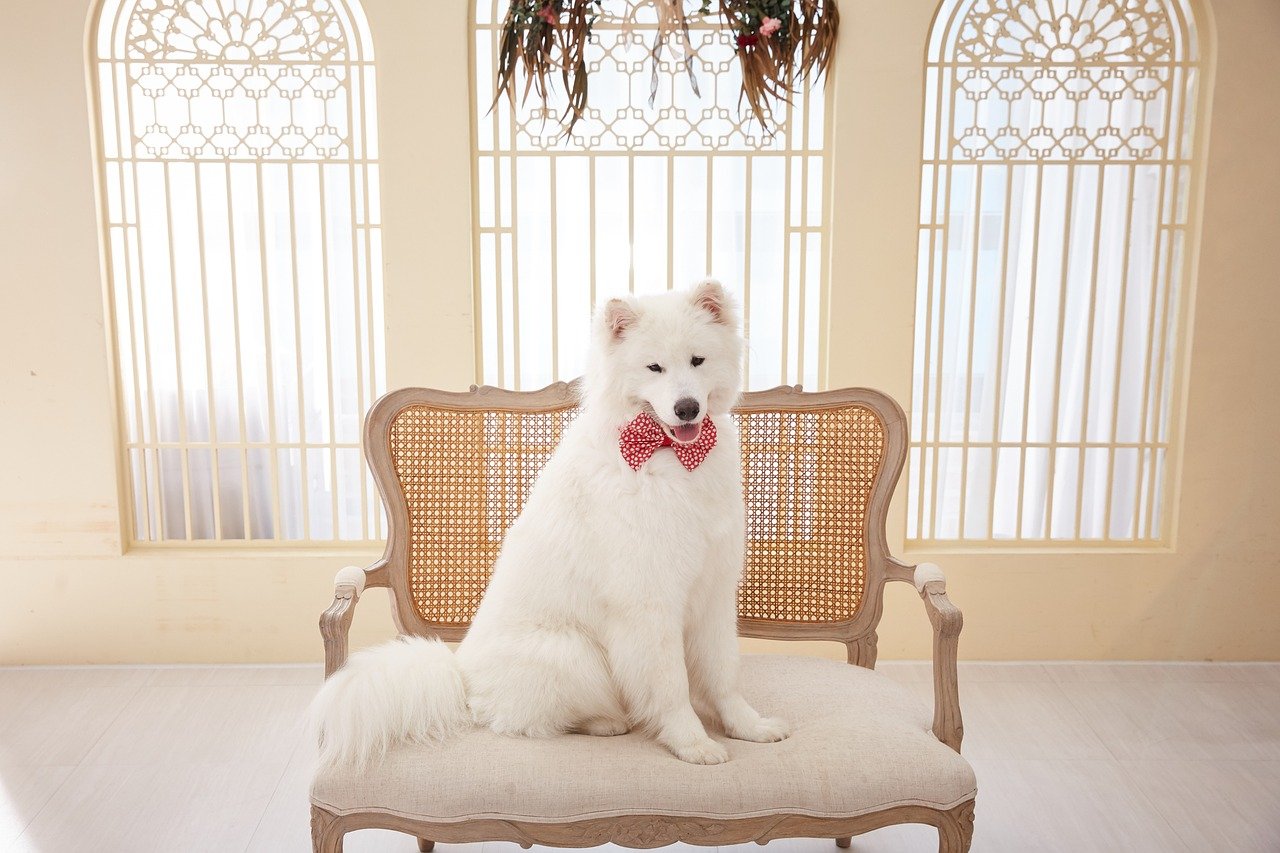
Training and Socialization
Training a Samoyed is not just an essential part of pet ownership; it's a journey that enhances the bond between you and your furry friend. These dogs are incredibly intelligent, which means they can pick up commands and tricks quickly, but they also have a playful streak that can sometimes lead them to be a bit mischievous. Imagine trying to teach a child who is both a genius and a class clown—this is what training a Samoyed can feel like! To ensure they grow up to be well-adjusted and affectionate companions, it's crucial to start training early and be consistent.
One of the most effective methods of training Samoyeds is through positive reinforcement techniques. This approach involves rewarding your dog with treats, praise, or playtime whenever they exhibit desired behaviors. For instance, if your Samoyed sits on command, shower them with affection and a tasty treat. This not only reinforces the behavior but also makes training sessions enjoyable for both of you. The more fun and rewarding the experience, the more eager your Samoyed will be to learn. It's like turning training into a game—who wouldn't want to play?
Additionally, early socialization is vital for Samoyeds to develop their friendly nature. Exposing them to various environments, people, and other animals helps foster their affectionate personality and reduces anxiety in new situations. Think of it this way: just as we learn to navigate the world through experiences, so do our pets. The more diverse their experiences, the better equipped they are to handle new situations without fear or aggression. This could involve taking them to the park, introducing them to different types of people, or even enrolling them in puppy classes where they can interact with other dogs.
To give you a better understanding of the training and socialization process, here’s a quick overview:
| Training Aspect | Importance | Tips |
|---|---|---|
| Basic Commands | Establishes communication | Use treats and praise |
| Socialization | Reduces anxiety | Expose to various environments |
| Positive Reinforcement | Encourages good behavior | Make it fun and rewarding |
In conclusion, the key to a well-behaved and affectionate Samoyed lies in early training and socialization. By utilizing positive reinforcement techniques and exposing your Samoyed to a variety of experiences, you set the stage for a loving, loyal companion who is not only well-mannered but also a joy to have around. Remember, the journey of training is as important as the destination; enjoy every moment of it!
- How long does it take to train a Samoyed? Training can vary, but with consistency, most commands can be learned within a few weeks.
- What is the best age to start training a Samoyed? Start training as early as 8 weeks old to establish good habits.
- Are Samoyeds easy to socialize? Yes, they are generally friendly, but early exposure is key to ensuring they remain well-adjusted.
- How much exercise do Samoyeds need? They require regular exercise, ideally at least an hour a day, to keep them happy and healthy.
Positive Reinforcement Techniques
When it comes to training your Samoyed, employing is not just effective; it's essential for nurturing their affectionate nature. This breed thrives on love and attention, making them particularly responsive to rewards-based training. Instead of using harsh methods, which can lead to fear and anxiety, focus on encouraging good behavior through praise, treats, and playtime. Imagine your Samoyed as a child who learns best when they're celebrated for their achievements rather than punished for their mistakes. This approach fosters a trusting relationship, allowing your furry friend to feel secure and loved.
One of the most effective methods is the clicker training technique. This involves using a small device that makes a clicking sound to mark the exact moment your dog performs the desired behavior. For instance, when your Samoyed sits on command, you click and then reward them with a treat. This immediate feedback helps them associate the action with a positive outcome, reinforcing their willingness to obey. Training sessions become a game, filled with joy and excitement, rather than a chore, making your Samoyed eager to learn.
It's important to remember that consistency is key. Use the same commands and rewards each time to avoid confusing your pup. For example, if you use the word "sit," stick with it. Over time, your Samoyed will begin to understand what you expect, and their affectionate personality will shine through as they eagerly aim to please you. Additionally, varying the rewards can keep the training sessions fresh and engaging. You might use treats, toys, or even a fun game of fetch as rewards, ensuring your Samoyed stays motivated.
Moreover, incorporating socialization into your training can enhance their affectionate behavior. Exposing your Samoyed to different environments, people, and pets helps them learn how to interact positively with others. This not only builds their confidence but also strengthens the bond between you and your dog. By rewarding them for calm and friendly behavior during these social experiences, you reinforce their natural tendency to be a loving companion.
In summary, are the cornerstone of training a Samoyed. By celebrating their successes, being consistent with commands, and integrating socialization into their routine, you cultivate a well-adjusted, affectionate pet. So, grab those treats, prepare the clicker, and get ready to watch your Samoyed blossom into the loving companion you've always dreamed of!
- What are the best treats for training my Samoyed?
Choose small, soft treats that are easy for your Samoyed to chew. High-value treats like chicken or cheese can be particularly motivating.
- How long should training sessions be?
Keep training sessions short and sweet, ideally around 5-10 minutes, to maintain your Samoyed's attention and enthusiasm.
- Can I train my Samoyed without treats?
Yes! You can use toys, praise, or playtime as rewards. The key is to find what motivates your individual dog the most.
- How do I know if my training is effective?
Look for signs of understanding, such as your Samoyed responding consistently to commands and displaying eagerness during training sessions.
Importance of Early Socialization
Early socialization is absolutely crucial for Samoyeds, and it plays a significant role in shaping their affectionate and friendly nature. Imagine a young puppy, full of energy and curiosity, encountering a bustling world for the first time. This is where socialization comes into play—it’s like giving them a passport to the world! By exposing your Samoyed to a variety of environments, people, and other animals at a young age, you're helping them develop the confidence they need to navigate life as a well-adjusted adult.
Socialization during the early weeks and months of a Samoyed's life can significantly influence their behavior as they grow. Just like how we learn to adapt and thrive in different social situations, puppies need to experience various stimuli to understand how to react appropriately. A well-socialized Samoyed is often more adaptable, less anxious, and more likely to exhibit the affectionate and playful demeanor that makes them such wonderful companions.
Furthermore, early socialization can help prevent behavioral issues that might arise from fear or anxiety. For instance, if a Samoyed isn’t used to meeting new people or other pets, they might react with hesitation or even aggression when faced with unfamiliar situations. By introducing them to diverse experiences, you’re not just enriching their lives; you’re also setting the stage for a loving relationship with your family and friends.
So, what exactly should you focus on during this critical period? Here are some key areas to consider:
- Exposure to Different Environments: Take your Samoyed to parks, busy streets, and quiet neighborhoods. Each outing teaches them how to behave in various settings.
- Meeting New People: Encourage friends and family to interact with your puppy. This helps them learn that new faces are not a threat but rather potential friends.
- Interaction with Other Animals: Arrange playdates with other dogs. This not only teaches them social cues but also reinforces their playful nature.
- Handling and Grooming: Get your Samoyed accustomed to being touched and groomed. This is essential for their future care and builds trust between you and your pet.
In conclusion, the importance of early socialization cannot be overstated. It’s not just about preventing behavioral issues; it's about fostering a loving and affectionate bond that will last a lifetime. By investing time and effort into socializing your Samoyed, you’re ensuring that they grow into a friendly, well-adjusted companion who brings joy and warmth into your home.
Q: When should I start socializing my Samoyed?
A: It's best to start socializing your Samoyed as early as possible, ideally between 3 to 14 weeks of age, when they are most receptive to new experiences.
Q: How can I socialize my Samoyed safely?
A: Ensure that all interactions are positive and controlled. Use a leash for safety, and gradually introduce them to new people and environments.
Q: What if my Samoyed shows fear during socialization?
A: Take a step back and allow them to acclimate at their own pace. Positive reinforcement can help them feel more comfortable in new situations.
Q: Can I socialize my Samoyed as an adult?
A: Yes, while it may take more time and patience, adult Samoyeds can still be socialized. Gradually introduce them to new experiences and use positive reinforcement.
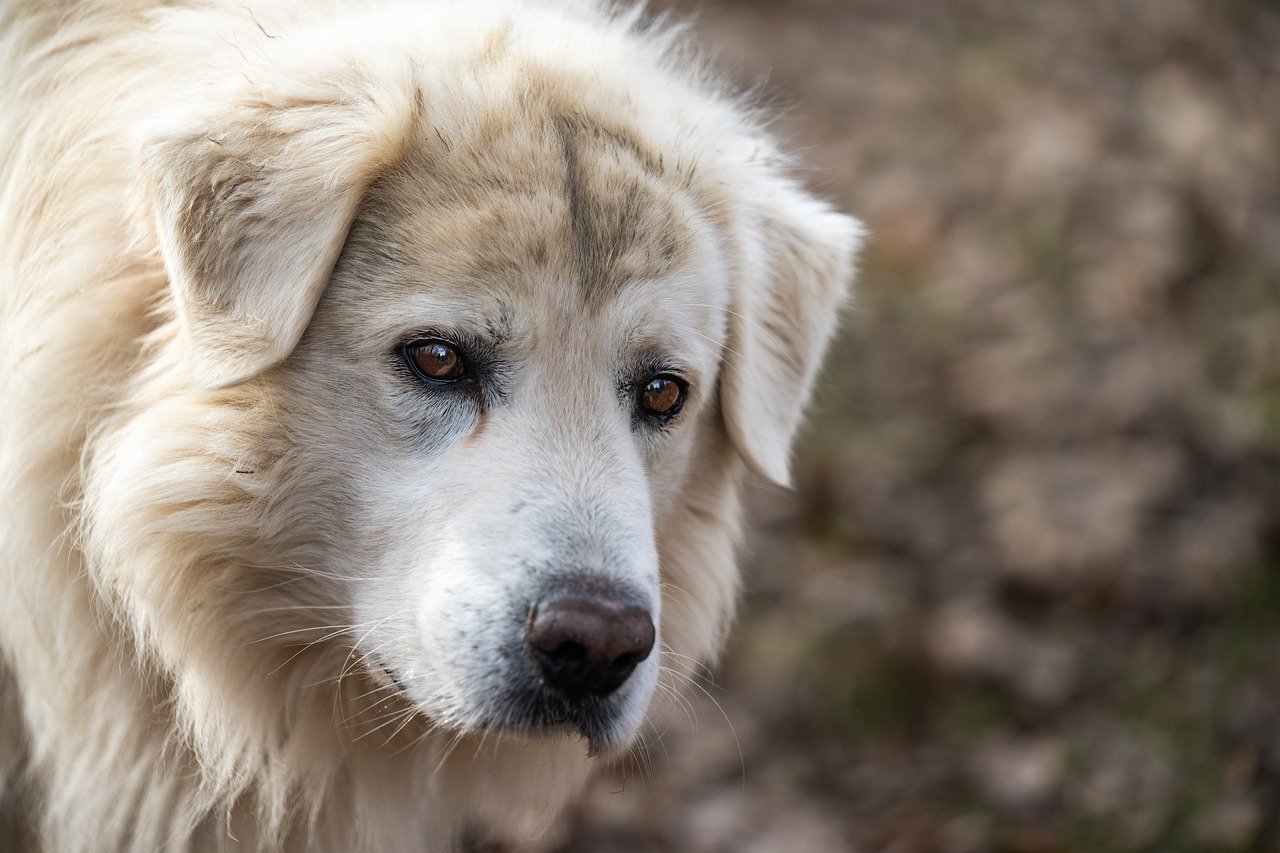
Living with a Samoyed
Having a Samoyed as a pet is like inviting a bundle of joy and affection into your home. These dogs are not just pets; they become integral members of the family, radiating warmth and love. Their playful demeanor and friendly nature make every day feel like a new adventure. Imagine coming home after a long day, only to be greeted by a fluffy, smiling face that seems to say, "I’ve missed you!" This is the essence of living with a Samoyed. They thrive on companionship and love to be around their humans, making them ideal for families and individuals alike.
One of the most rewarding aspects of sharing your life with a Samoyed is the bond that develops over time. These dogs are incredibly social creatures. They enjoy being involved in family activities, whether it's a hike in the great outdoors or simply lounging on the couch during movie night. Their affectionate nature encourages them to seek out cuddles and playtime, which fosters a deep connection between the dog and its owner. It’s almost as if they have a sixth sense for when you need some extra love and support.
However, owning a Samoyed also comes with responsibilities that can’t be overlooked. These dogs require regular exercise to maintain their health and happiness. A bored Samoyed can quickly turn into a mischievous one, so engaging them in activities such as walks, runs, or play sessions is crucial. They are known for their intelligence and energy, so keeping their minds stimulated is just as important as physical exercise. Consider incorporating activities like agility training, fetch, or even puzzle toys to keep them entertained.
Moreover, understanding their grooming needs is essential for a harmonious living situation. Samoyeds have a thick double coat that sheds quite a bit, especially during seasonal changes. Regular grooming sessions not only keep their coats looking pristine but also provide a great opportunity for bonding. As you brush through their fluffy fur, you’re not just maintaining their appearance; you’re reinforcing the trust and affection between you and your furry friend.
In addition to physical needs, it’s vital to consider the emotional well-being of your Samoyed. These dogs thrive on affection and can experience separation anxiety if left alone for long periods. Establishing a routine that includes quality time together can help mitigate these feelings. Whether it’s a morning cuddle session or an evening stroll, these moments are precious for both you and your Samoyed. Remember, they are not just pets; they are companions who want to share life’s moments with you.
To sum it up, living with a Samoyed is a delightful experience filled with love, joy, and a bit of responsibility. Their affectionate nature and playful spirit will undoubtedly enrich your life. Embrace their quirks, enjoy their companionship, and you’ll find that having a Samoyed is one of the best decisions you could ever make!
| Question | Answer |
|---|---|
| Do Samoyeds shed a lot? | Yes, Samoyeds have a thick double coat that sheds heavily, especially during seasonal changes. Regular grooming helps manage this. |
| Are Samoyeds good with children? | Absolutely! Samoyeds are known for their friendly and gentle nature, making them great companions for children. |
| How much exercise do Samoyeds need? | Samoyeds require daily exercise, including walks, playtime, and mental stimulation to keep them happy and healthy. |
| Can Samoyeds be left alone for long periods? | Samoyeds can experience separation anxiety if left alone for too long, so it’s best to gradually train them to be comfortable alone. |
Frequently Asked Questions
- What makes Samoyeds such affectionate dogs?
Samoyeds are known for their loving nature primarily because they were bred for companionship by the Samoyede people. Their history as herding and working dogs has fostered a strong bond with humans, making them incredibly friendly and eager to be around people.
- How often should I groom my Samoyed?
Grooming a Samoyed should be done at least once a week, but during shedding season, you may need to brush them daily. Regular grooming not only keeps their fluffy coat looking great but also strengthens the bond between you and your furry friend.
- Are Samoyeds good with children and other pets?
Absolutely! Samoyeds are known for their friendly and playful temperament, making them excellent companions for children. They generally get along well with other pets too, especially if they are socialized properly from an early age.
- What training methods work best for Samoyeds?
Positive reinforcement techniques are the most effective for training Samoyeds. They respond well to treats, praise, and playtime as rewards, which encourages their affectionate behavior and eagerness to please.
- How can I help my Samoyed adjust to new environments?
Early socialization is key! Expose your Samoyed to various people, places, and experiences as a puppy. This will help them develop confidence and adaptability, ensuring they remain the loving and friendly dogs they are meant to be.
- How do I know when to bathe my Samoyed?
Bathing your Samoyed is necessary for hygiene, but it’s also a great bonding experience. You should bathe them every few months or when they start to smell or get dirty. Just be sure to use dog-friendly shampoos to keep their coat healthy!
- Do Samoyeds require a lot of exercise?
Yes, Samoyeds are active dogs that need regular exercise to stay happy and healthy. Daily walks, playtime, and mental stimulation are essential to keep them engaged and maintain their affectionate demeanor.

